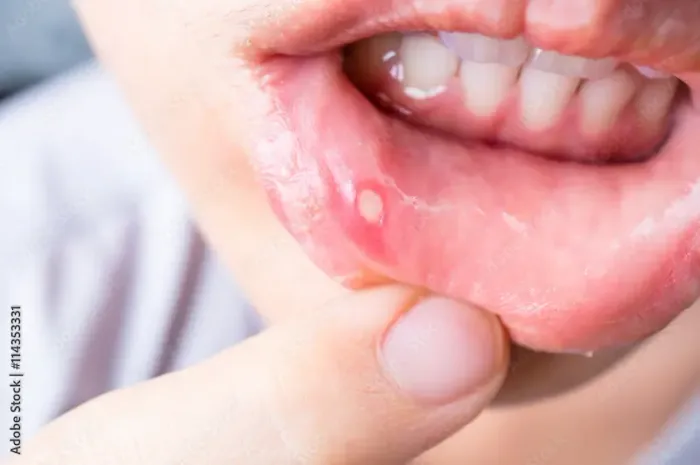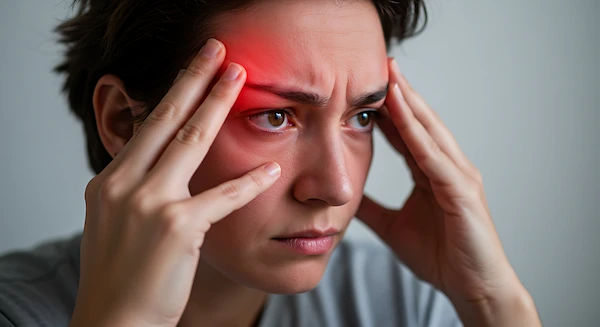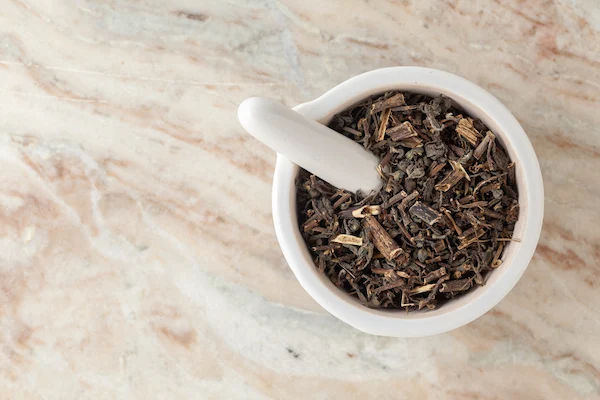Canker Sore Overview of Treatment and Symptoms
Canker sores are small, painful ulcers inside the mouth that can disrupt eating and speaking. Learn about their common symptoms, possible triggers, and effective treatment options for faster healing.

Written by Dr. Rohinipriyanka Pondugula
Reviewed by Dr. Vasanthasree Nair MBBS
Last updated on 13th Jan, 2026

Dealing with a painful sore inside your mouth? You might have a canker sore, a common but uncomfortable condition. While these sores are usually harmless, they can make eating, drinking, and even talking painful. The good news is that they typically heal on their own within a week or two.
In this article, we’ll explain what canker sores are, their symptoms, causes, and how you can manage them effectively. We’ll also share some helpful home remedies and when you should consider seeing a doctor.
What is a Canker Sore?
A canker sore (also called aphthous ulcer) is a small, shallow, painful ulcer that appears inside the mouth—on the gums, tongue, inner cheeks, or lips. Unlike cold sores (which are caused by the herpes virus and appear on the lips), canker sores are not contagious and occur only inside the mouth.
Types of Canker Sores
1. Minor Canker Sores: Small (less than 1 cm), heal in 1–2 weeks, and leave no scars.
2. Major Canker Sores: Larger (over 1 cm), deeper, take weeks or months to heal, and may leave scars.
3. Herpetiform Canker Sores: Tiny clusters of sores that merge into larger ulcers, often healing in 1–2 weeks.
Symptoms of Canker Sores
The most common signs include:
• A round or oval-shaped sore with a white or yellow centre and a red border.
• Pain or burning sensation, especially when eating spicy, salty, or acidic foods.
• Tingling or irritation before the sore appears.
Consult Top Specialists If You Notice Any Of These
In severe cases, you may also experience:
• Fever
• Swollen lymph nodes
• Fatigue
What Causes Canker Sores?
The exact cause is unclear, but several factors can trigger them:
1. Minor Mouth Injuries
• Accidental cheek bites
• Brushing too hard
• Dental work (braces, fillings)
2. Food Sensitivities
• Citrus fruits (oranges, lemons)
• Spicy or acidic foods
• Chocolate, coffee, nuts
3. Nutritional Deficiencies
• Low iron, vitamin B12, zinc, or folic acid
4. Hormonal Changes
• Some women get canker sores during menstruation.
5. Stress & Weak Immunity
• Emotional stress or illness can trigger outbreaks.
6. Underlying Health Conditions
• Autoimmune disorders (like celiac disease, Crohn’s disease)
• Viral infections
How to Treat Canker Sores at Home?
Most canker sores heal on their own, but these remedies can help reduce pain and speed up recovery:
1. Saltwater Rinse
• Mix ½ teaspoon of salt in a glass of warm water.
• Swish in your mouth for 30 seconds, then spit out.
• Repeat 2–3 times a day to reduce inflammation.
2. Baking Soda Paste
• Make a paste with baking soda and water.
• Apply directly to the sore to neutralise acidity and soothe pain.
3. Honey
• Dab a little raw honey on the sore—it has natural healing properties.
4. Over-the-Counter Gels
• Use numbing gels (like Orajel or Anbesol) to relieve pain.
• Look for benzocaine or lidocaine in the ingredients.
5. Avoid Irritating Foods
• Skip spicy, acidic, or crunchy foods until the sore heals.
6. Ice Chips
• Sucking on ice can temporarily numb the pain.
When to See a Doctor?
Most canker sores go away on their own, but consult a doctor if:
• The sore lasts more than 2 weeks.
• It’s extremely large or painful.
• You get frequent sores (more than 2–3 times a year).
• You also have fever, fatigue, or swollen lymph nodes.
A doctor may prescribe:
• Steroid mouth rinses (to reduce inflammation).
• Antibacterial mouthwash (to prevent infection).
• Vitamin supplements (if deficiency is the cause).
How to Prevent Canker Sores?
While they can’t always be prevented, these tips may help:
• Maintain good oral hygiene: Brush gently with a soft-bristled toothbrush.
• Avoid trigger foods: Spicy, acidic, or rough-textured foods.
• Manage stress: Try relaxation techniques like yoga or meditation.
• Check for nutritional deficiencies: Eat a balanced diet rich in vitamins B12, iron, and zinc.
Conclusion
Canker sores are painful but usually harmless. With simple home care, they heal quickly. However, if you experience frequent or severe sores, it’s best to consult a doctor to rule out underlying conditions.
If you’re struggling with persistent canker sores, Apollo 24|7 can help! You can book an online consultation with a specialist or schedule a test to check for deficiencies.
Consult Top Specialists If You Notice Any Of These
Consult Top Specialists If You Notice Any Of These

Dr. Sainik Pradhan
Dentist
2 Years • BDS
EGRA
PRADHAN DENTAL CLINIC, EGRA

Dr. Sanjna Nayar
Dentist
33 Years • BDS,MDS-Prosthodontics & Implantology, PhD - Dental Implantology, Master in Prosthetic Section Implants ICOI USA, Fellow in Implantology ICOI USA
Delhi
Apollo Hospitals Indraprastha, Delhi
(25+ Patients)

Dr. Reena Thaper
Dentist
36 Years • BDS
Jaipur
Thaper Dental cliniC, Jaipur

Dr. Rajeev Thaper
Dentist
40 Years • BDS
Jaipur
Thaper Dental clinic, Jaipur

Dr. Shamit Thaper
Dentist
6 Years • BDS, MDS (Periodontology)
Jaipur
Thaper dental Clinic, Jaipur
Consult Top Specialists If You Notice Any Of These

Dr. Sainik Pradhan
Dentist
2 Years • BDS
EGRA
PRADHAN DENTAL CLINIC, EGRA

Dr. Sanjna Nayar
Dentist
33 Years • BDS,MDS-Prosthodontics & Implantology, PhD - Dental Implantology, Master in Prosthetic Section Implants ICOI USA, Fellow in Implantology ICOI USA
Delhi
Apollo Hospitals Indraprastha, Delhi
(25+ Patients)

Dr. Reena Thaper
Dentist
36 Years • BDS
Jaipur
Thaper Dental cliniC, Jaipur

Dr. Rajeev Thaper
Dentist
40 Years • BDS
Jaipur
Thaper Dental clinic, Jaipur

Dr. Shamit Thaper
Dentist
6 Years • BDS, MDS (Periodontology)
Jaipur
Thaper dental Clinic, Jaipur




_2.webp)